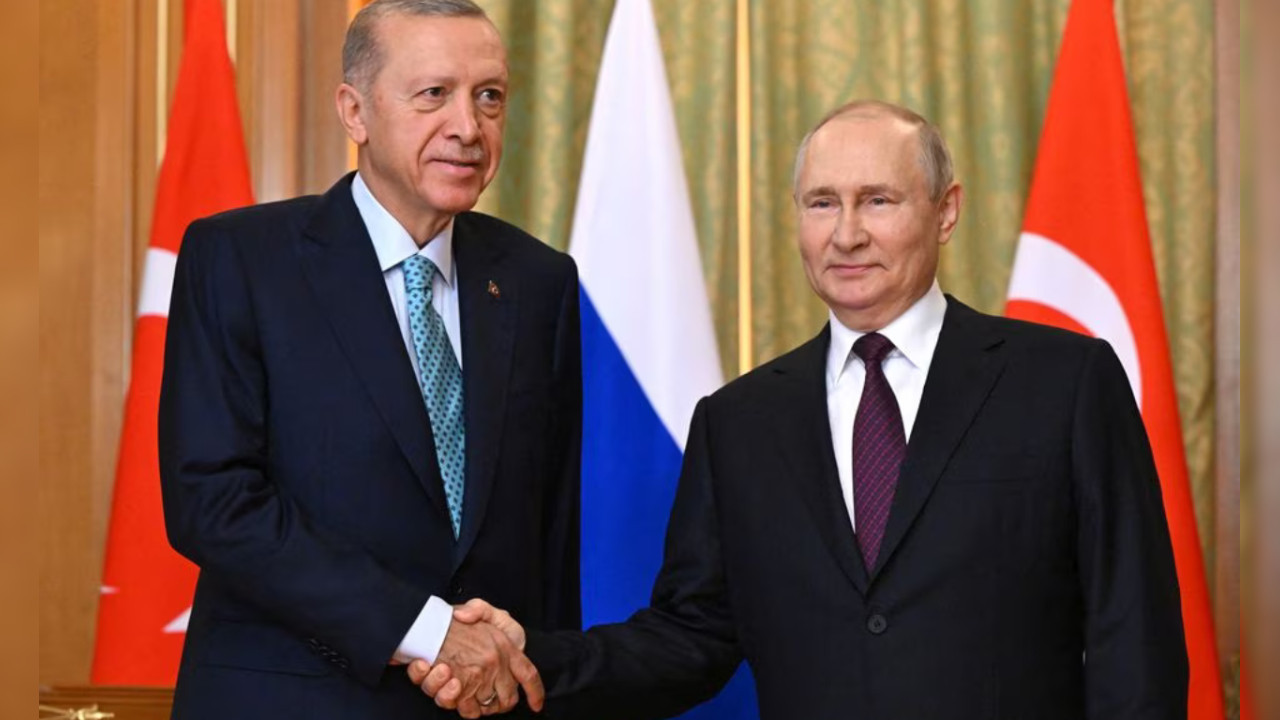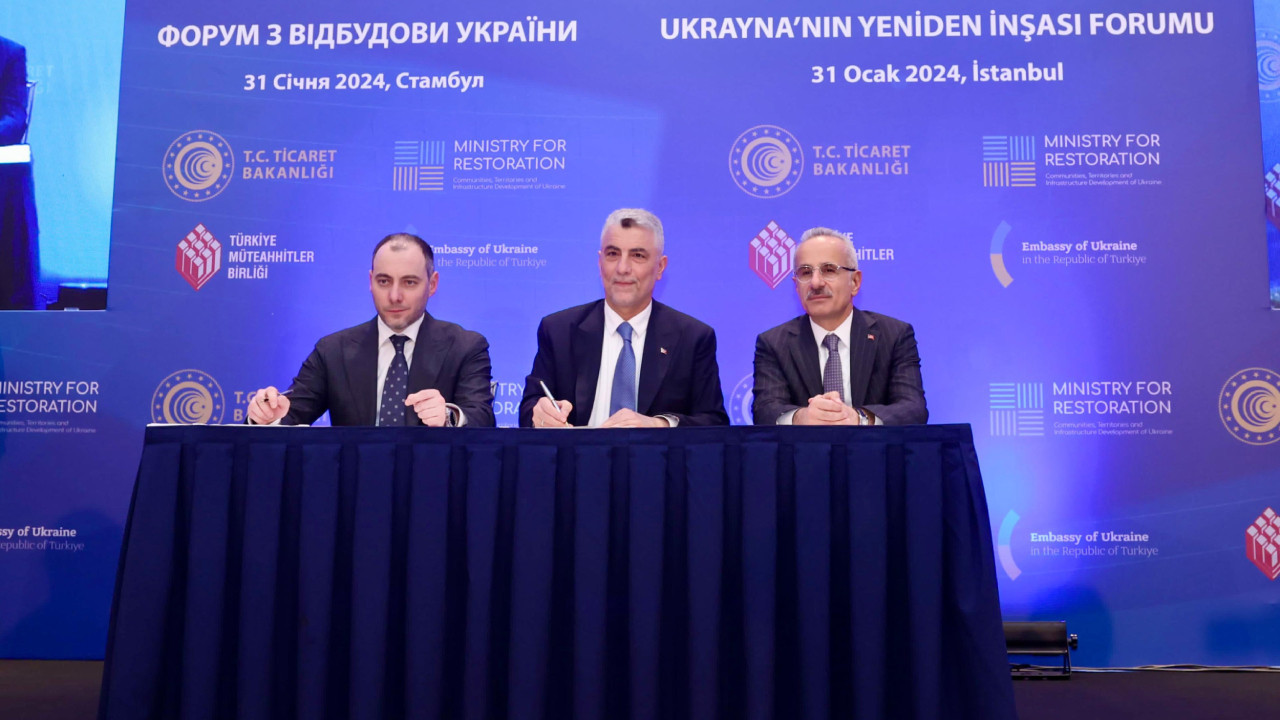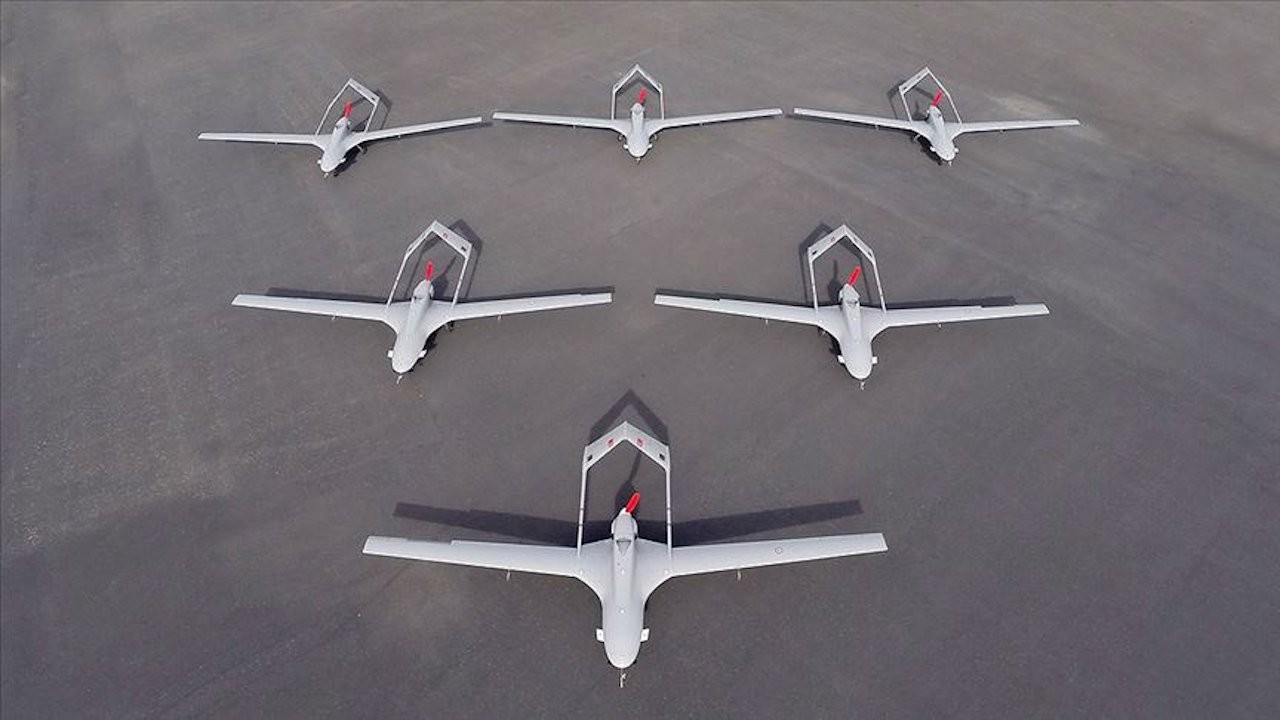Russian MP threatens to bomb Turkish Baykar’s drone factory in Ukraine
Russian parliamentarian Dmitry Belik from Putin's United Russia Party stated that Turkish defense company Baykar’s drone factory would become a "legitimate target,” journalist Murat Yetkin reported. Belik's statement came after the postponement of Putin's visit to Turkey.
Duvar English
Following the Turkish private defense company Baykar's announcement that the drone factory being built in Ukraine would start production within a year, Dimitri Belik, a member of the Russian Parliament's International Relations Committee, stated that the factory will become a “legitimate target” of Moscow.
Journalist Murat Yetkin noted that the parliamentarian spoke to the Russian website Lenta.ru and drew attention to the fact that Belik's statement came after the postponement of Russian President Vladimir Putin’s visit to Turkey.
Belik, a Sevastopol deputy from Putin's United Russia party, has been under sanctions by the European Union, the United Kingdom, and Canada for his role in the war in Ukraine.
Belik justified his threat, "(Turkish President Recep Tayyip) Erdoğan is acting pragmatically and protecting his country's interests both by selling Bayraktar drones and by generating revenue from Russian gas supplies to Europe via the Turkish Stream."
He continued, "However, we have our own objectives. I would like to emphasize once again that if this facility will produce military equipment, then we will see it as a legitimate target.”
The Russian deputy said that Russia cannot impose a ban on Turkey on this issue, but it "has the right to fight back."
Belik also claimed that even if Russian forces hit Bayraktar, this would not affect Turkish-Russian relations. He based this on the claim that “the two countries can find a common language on many issues.”
Turkey in between Russia, NATO
The Bayraktar factory has not been the only problem Turkey is currently facing with Russia, according to journo Yetkin. One serious issue was natural gas debt to Russia, which Putin postponed for a year before the general elections in 2023 as a gesture to Erdoğan.
On the other hand, Turkish banks have been “tightening” transactions with Russian citizens to avoid the United States (U.S.) sanctions. Also, the U.S. put the S-400 missiles in Turkey as an obstacle to Turkey's return to the F-25 fighter jets program.
NATO Secretary General Jens Stoltenberg on Feb. 11 called on European member states of the alliance to produce more weapons, citing the U.S. Congressional Republicans' blocking of the budget for arms aid to Ukraine.
The NATO Secretary-General stated that armaments should move from “the slow production of peacetime to the rapid production required in times of conflict.”
The possibility of Donald Trump's re-election in the U.S. presidential elections in November 2024 is another factor that worries NATO members. Trump has threatened that he would not help countries that do not pay their NATO dues in full, even in the event of an attack.
According to NATO membership rules, countries must pay at least two percent of their national income to NATO. Turkey, which has made a breakthrough in the defense industry in recent years, has been among the NATO members that have fallen short of the 2 percent target, remaining around 1.3 percent in 2023.
The Russian-Ukrainian war in the north, the Syrian civil war in the south, Israel’s siege on Gaza, and the fight against the outlawed Kurdistan Workers’ Party (PKK) have been increasing the defense pressure on Turkey, the journo noted.

 Russian President Putin's Turkey visit delayed until AprilDiplomacy
Russian President Putin's Turkey visit delayed until AprilDiplomacy Turkish firms to help Ukraine's post-war reconstruction as both countries sign accordDiplomacy
Turkish firms to help Ukraine's post-war reconstruction as both countries sign accordDiplomacy Turkish drone maker Baykar will complete plant in Ukraine in two yearsDiplomacy
Turkish drone maker Baykar will complete plant in Ukraine in two yearsDiplomacy